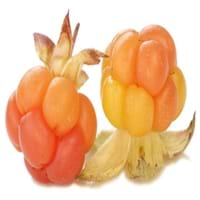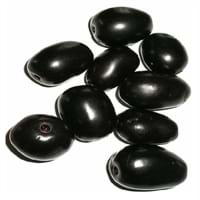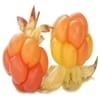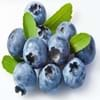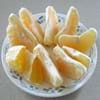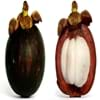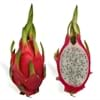Cloudberry vs Jambul Nutrition
Nutrition
Serving Size
100 g
100 g
Carbs
8.60 g
99+
14.00 g
32
Fiber
Not Available
0.60 g
39
Protein
2.40 g
7
1.00 g
26
Protein to Carb Ratio
0.28
2
0.04
24
Vitamins
Vitamin A (Retinol)
Not Available
0.00 mcg
37
Vitamin B1 (Thiamin)
0.05 mg
21
0.02 mg
39
Vitamin B2 (Riboflavin)
0.07 mg
12
0.01 mg
99+
Vitamin B3 (Niacin)
0.90 mg
11
0.25 mg
99+
Vitamin B6 (Pyridoxin)
Not Available
0.04 mg
99+
Vitamin C (Ascorbic Acid)
158.00 mg
3
11.85 mg
99+
Fat
0.80 g
9
0.23 g
32
Minerals
Potassium
Not Available
55.00 mg
99+
Iron
0.70 mg
17
1.41 mg
10
Sodium
Not Available
26.20 mg
3
Calcium
18.00 mg
23
11.65 mg
31
Magnesium
Not Available
35.00 mg
3
Phosphorus
35.00 mg
14
15.60 mg
30
Fatty Acids
Omega 3s
0.00 mg
38
0.00 mg
38
Omega 6s
0.00 mg
99+
0.00 mg
99+
Sterol
Phytosterol
Not Available
0.00 mg
16
Water Content
87.00 g
27
84.75 g
38
Ash
1.20 g
6
0.50 g
26
Carbs in Cloudberry and Jambul
Nutrients are present in all the fruits but in different quantities. Hence, it is essential to be aware of the nutritional value of fruits before we add them to our health routine. Cloudberry vs Jambul Nutrition will help you choose the best fruit among the two. Carbs in Cloudberry and Jambul are 8.60 g and 14.00 g respectively. The protein content of Cloudberry and Jambul is 2.40 g and 1.00 g. Protein to carb ratio of any fruit must be approximately 1.34. Protein to carb ratio of Cloudberry is 0.28 and in Jambul, it is 0.04. Nutritional value of fruits is incomparable to other food items. They provide all the vital nutrients required for proper functioning of our body.
|
||
|
||
|
